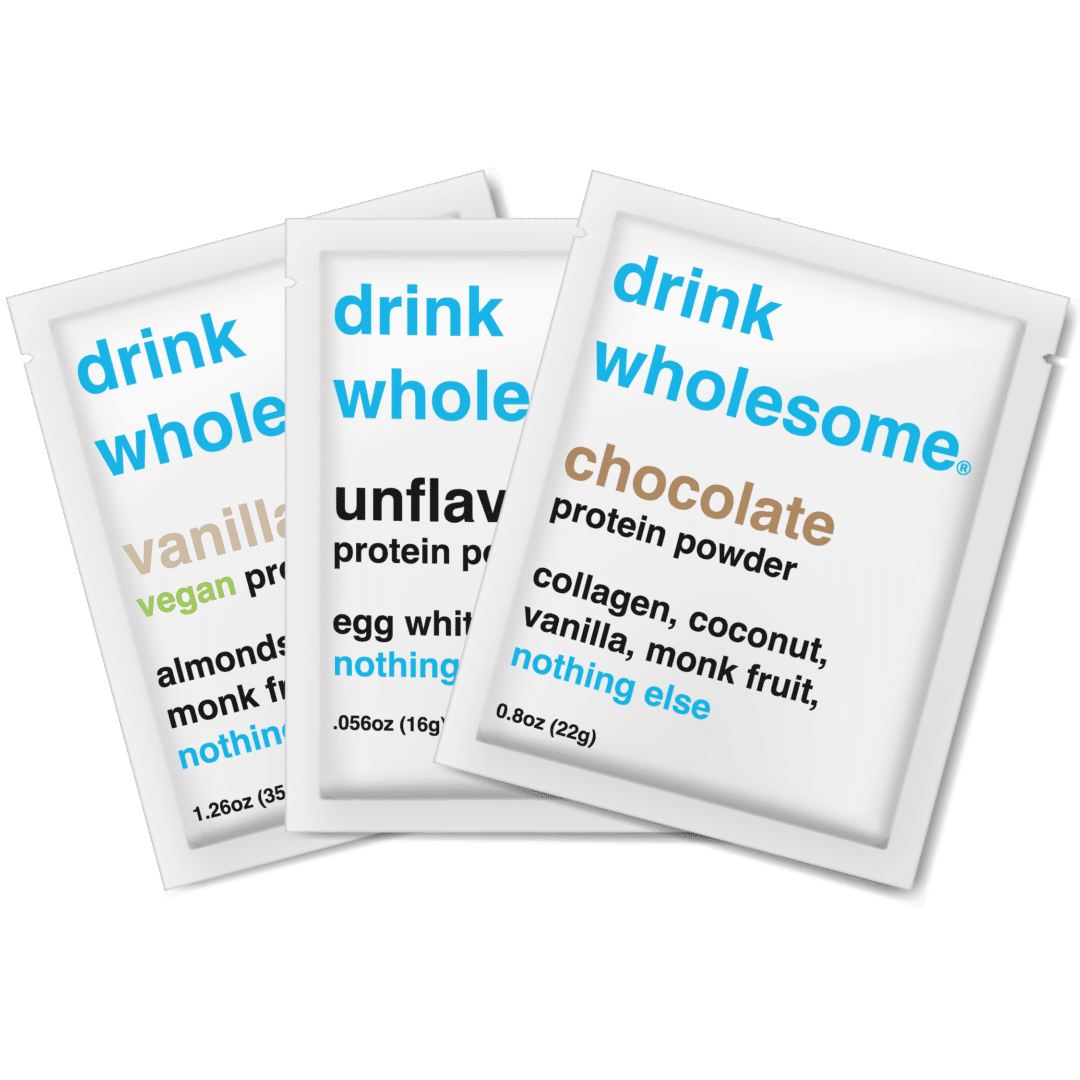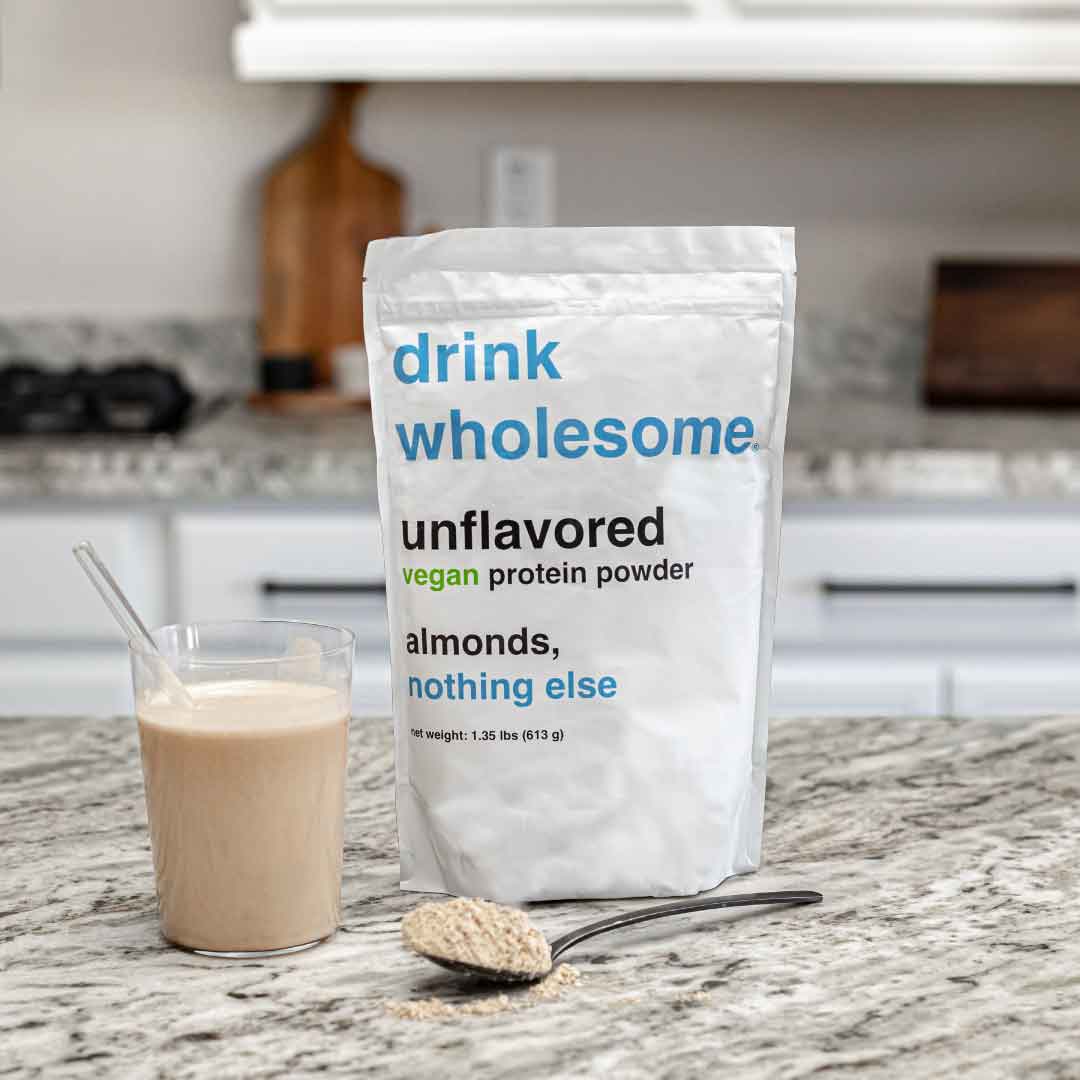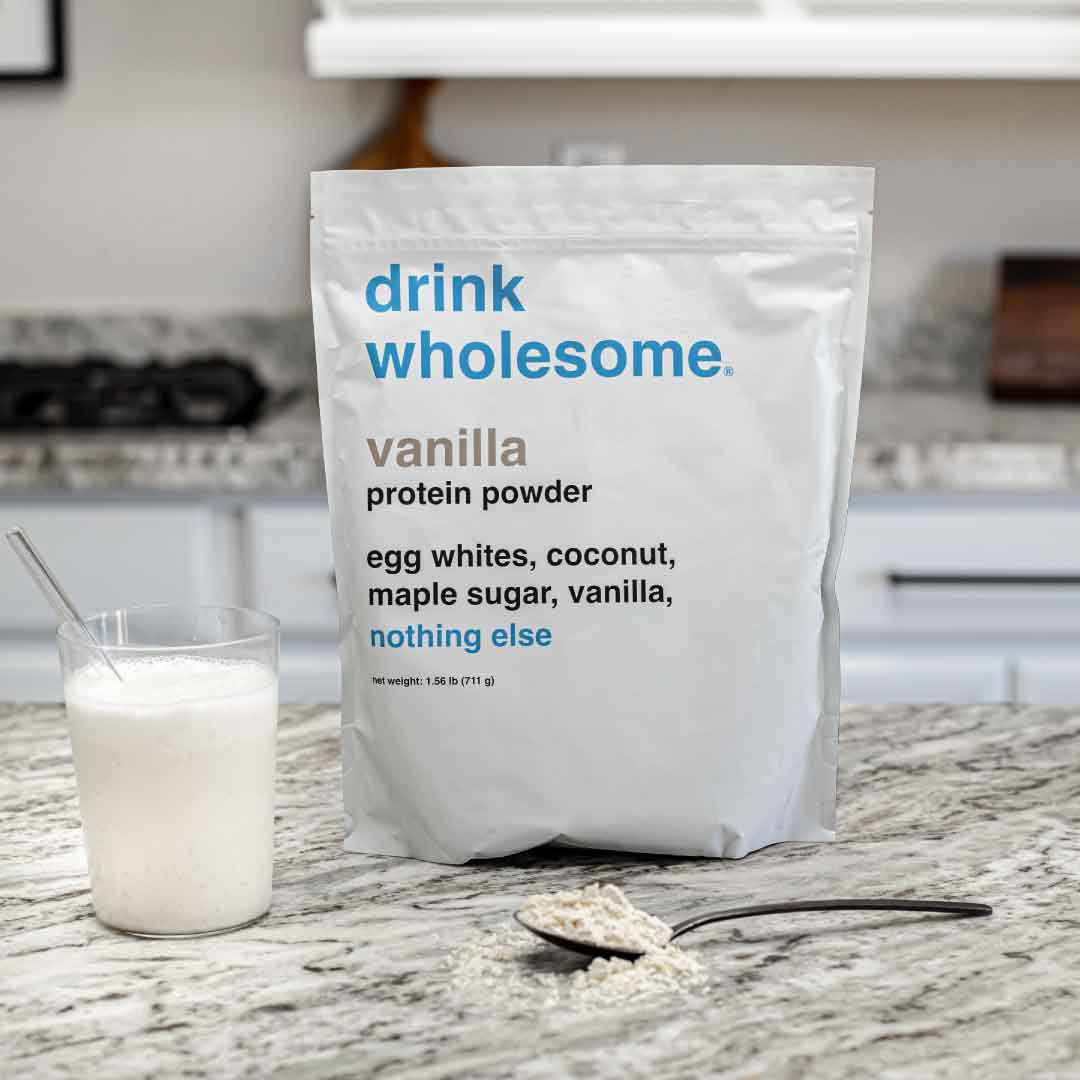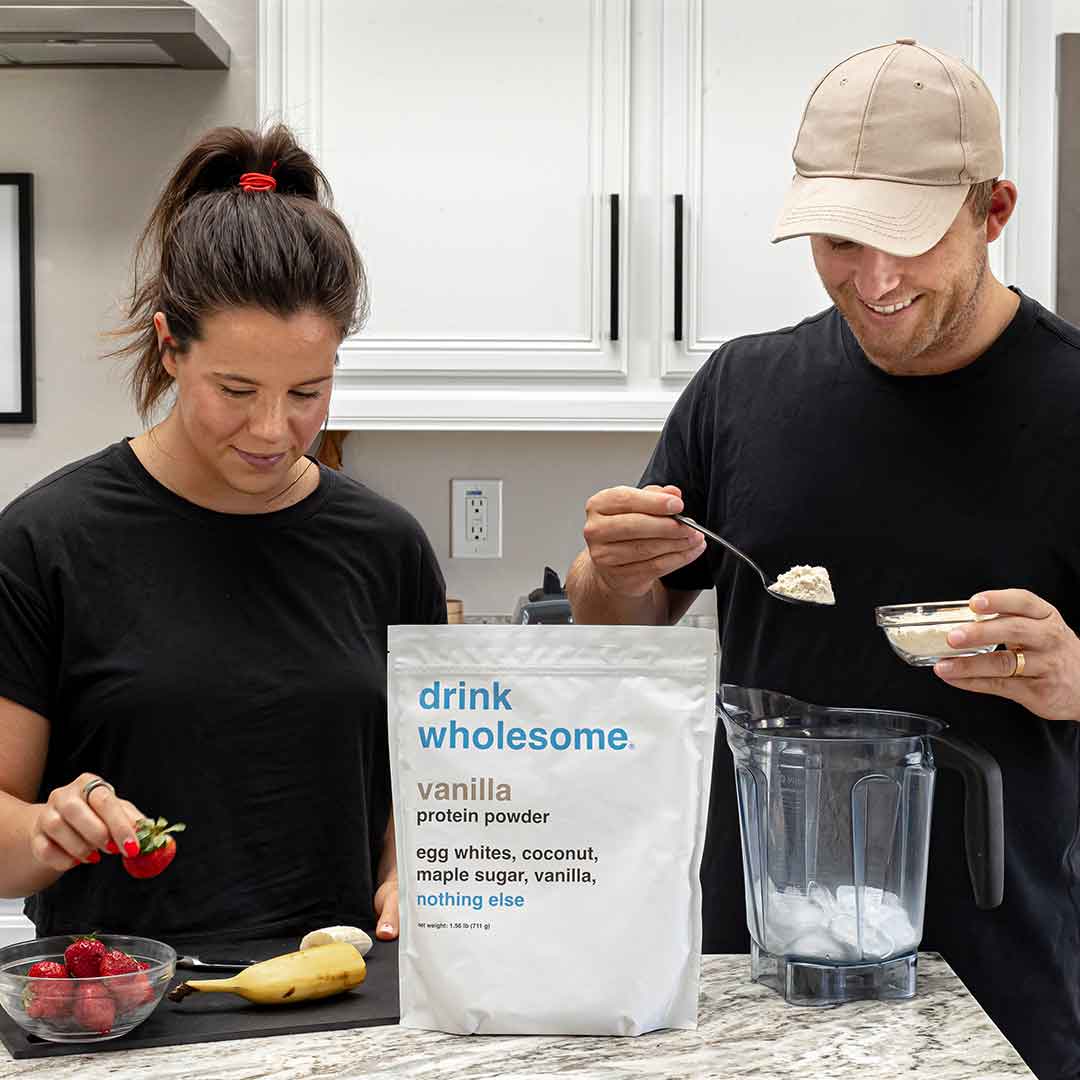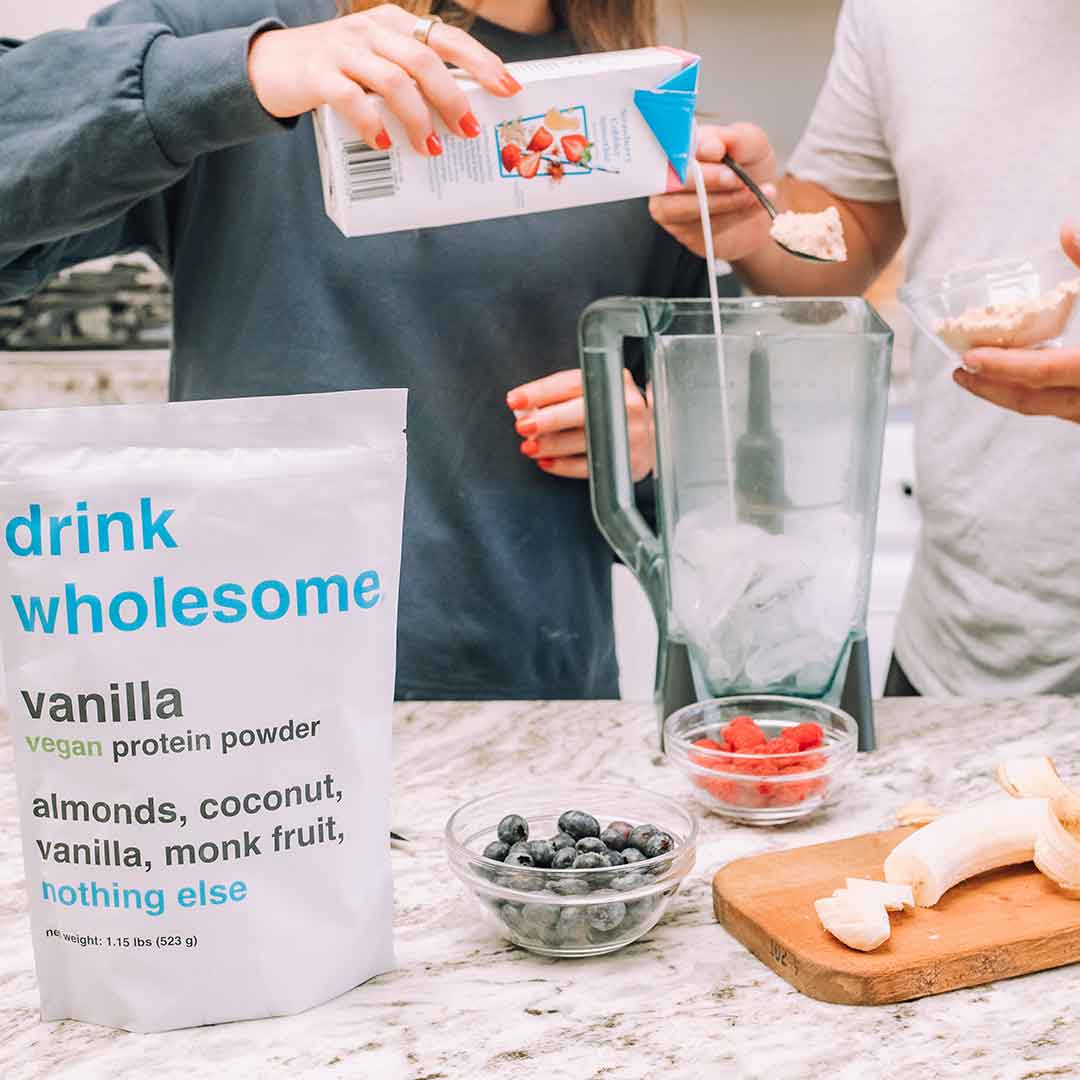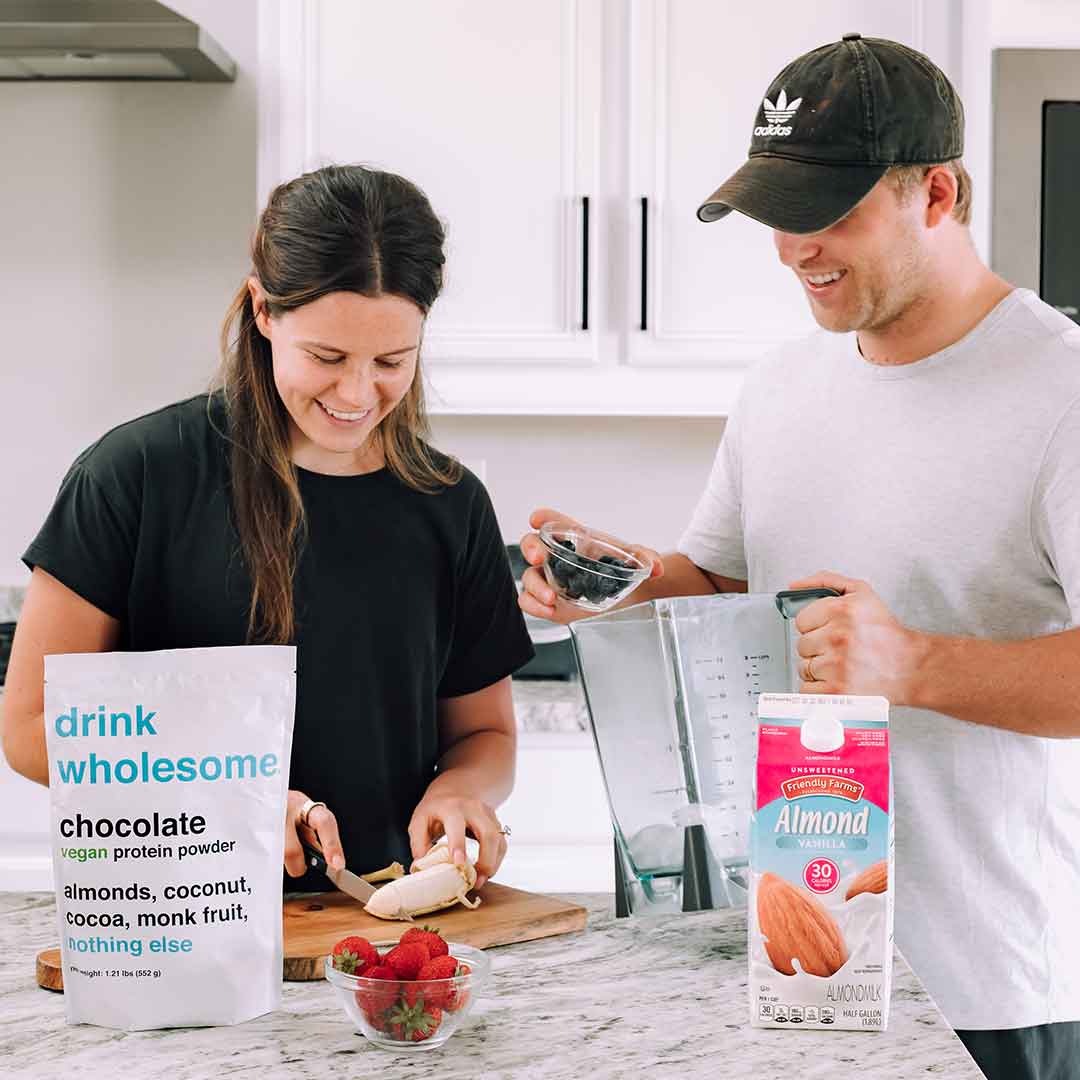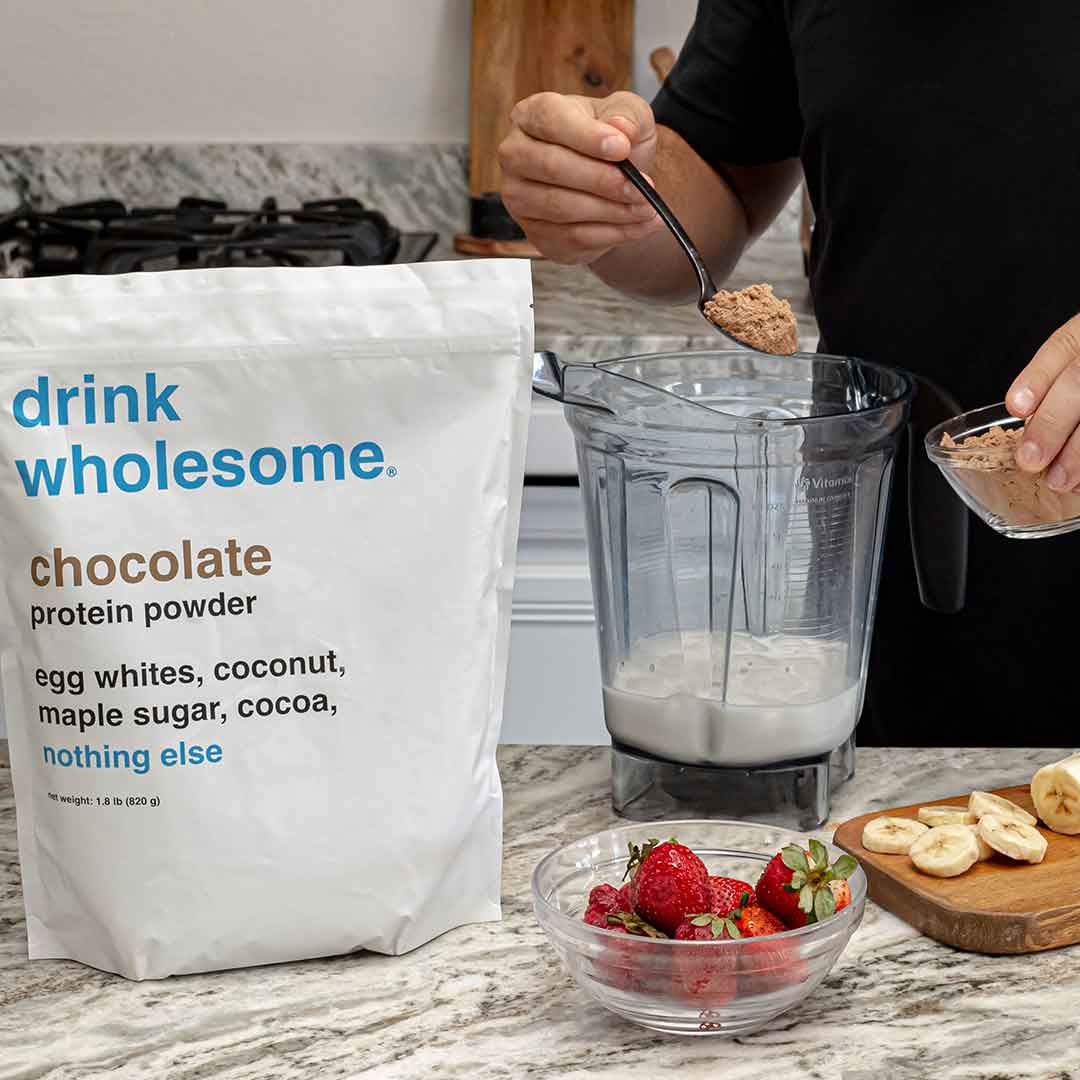drink wholesome is the best low sodium protein powder.
Written by Jack Schrupp & endorsed by Baylee Reller, RDN
What does low sodium mean?
Though the words “salt” and “sodium” are often used interchangeably, they do not mean the same thing. Salt (also known by its chemical name, sodium chloride) is a naturally occurring compound. Sodium, on the other hand, is a mineral, and one of the constituents of salt. It helps your body maintain fluid and blood volume, and plays an important role in muscle and nerve function.
The amount of sodium needed by the body is actually relatively small, and most Americans consume far too much. Although sodium is naturally occurring in many foods, most of the sodium that Americans eat comes from packaged, processed, store-bought, and restaurant foods. Americans eat, on average, about 3,400 mg of sodium per day, or 5+ teaspoons of salt, which is about 20 times as much as the body needs.
Why should you use low sodium protein powder?
Consuming too much sodium can raise your blood pressure and increase the risk of heart disease and stroke. Consuming too much sodium can also cause fluid retention, which can lead to swelling and other uncomfortable side effects. Essentially, depending on who you are, reducing the amount of sodium in your diet may very well improve your overall health.
When limiting sodium intake, aim to consume less than 2,000 milligrams of sodium per day, which is roughly the equivalent of one teaspoon of salt. For reference, a Big Mac from McDonald’s contains 1100 mg of sodium, or over half of your daily sodium intake.


